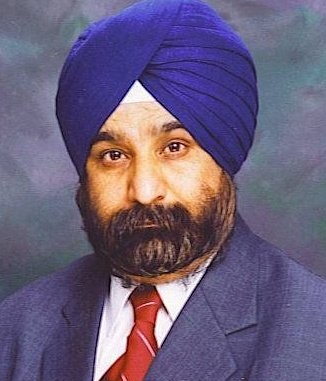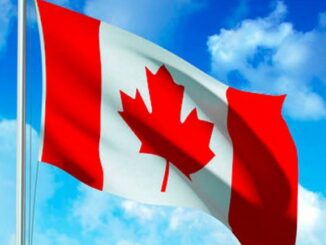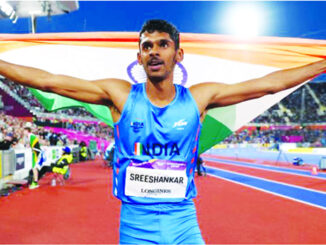
A Conversation with the Global Indian Trade and Cultural Council Founder President Harry S. Panaser on GITCC Webinar Vision
EDISON, NJ (TIP): Harry S. Panaser, founder-president of the Global Indian Trade and Cultural Council (GITCC) has already organized two extremely successful webinars with top brass of pharmaceutical companies and universities in US and India. He is poised for the third one.
The Indian Panorama spoke with Harry about the vision and program of the GITCC.
TIP: What is the Global Indian Trade and Cultural Council and its vision?
Harry: Global Indian Trade & Cultural Council (GITCC) is founded with a vision to enhance economic and cultural cooperation between the US and India. With cutting edge policy research and advisory to National and State governments on trade issues with an India focus, GITCC is one of the organizations with established credentials for enhancing economic and cultural cooperation. We serve as a facilitator, enabling trade and investment between both the countries. We promote legitimate interests of the US – India community for their legitimate secular and non-political developmental interest globally. Geographically, we have a reasonably strong base in both India and the US. We will assist in building partnerships through our consulting and advisory services for a large base of clients, which includes the Government of India, corporate clientele, non-governmental bodies and the Embassies in India.
TIP: What was the thought in pioneering the first of its kind US-India Webinar Series in healthcare in the USA?
Harry: The market size of India in Pharmaceuticals alone is estimated to be $100 billion and medical devices is $25 billion by 2025. India is looking towards growth tenure as the 55 billion US dollar product line is going off patents and this will certainly help India accelerate a higher market share and exports. The coronavirus pandemic has fanned anxieties in Washington over America’s dependence on India and China for certain critical drugs. In recent weeks, both Democrats and Republicans in Congress have penned legislation attempting to retool America’s drug supply chain. But Trump’s proposal is the most dramatic action to date. If we learned anything from the [coronavirus] pandemic, it is simply that we are dangerously overdependent on foreign nations for our essential medicines, for medical supplies and the medical equipment. We pioneered this online workshop representing Industry, Academia and Government from countries. As an Advisor on Board you are at the end of each webinar presenting the summary of each session. Our panelists included Consulate General of India, NY, Vice Chancellor, Eminent Professors from Harvard, John Hopkins, Punjab University and US Sciences bureaucrats and high-level dignitaries, CEOs, ,COOs and CFOs from companies like Bharat Biotech, Bharat Serum, Birlasoft, Drug Controller, bureaucrats and high-level dignitaries
TIP: Under Covid 19 Challenge in your 2020 series what is your understanding on US India Relations in future developments?
Harry: Both the United States and India will be key players in future developments in the medical supply trade relevant to the COVID-19 crisis, as each is a giant on the world stage in pharmaceutical production. India is the second largest exporter of pharmaceuticals to the United States and the United States is the largest exporter of medical devices to India. However, each has now put into place—or is considering—trade restrictions in these sectors. India has banned exports of certain active pharmaceutical ingredients in order to counteract recent interruptions in supplies from China and has just put into place a ban on exports of ventilators and surgical and patient masks. The United States is reportedly considering new “Buy American” restrictions on pharmaceutical products and India considering “Make in India” policy. The White House advisor insisted that deregulation of industry and incentives for new forms of manufacturing would help keep drug prices down. The so-called “Buy American” and “Make in India” order could represent a seismic shakeup of the drug industry. Our webinar series promotes this very concept of mutual dependent partnerships.
TIP: What is your say on innovation and cost control in the healthcare process which could be beneficial to both the countries?
Harry: From India for America, there is innovation and cost control. Please allow me to bring a study which I have in my notes , sorry I don’t remember where I read it but yes in 2018, Dartmouth professor Vijay Govindarajan and Northeastern University professor Ravi Ramamurti published a book, ”Reverse Innovation in Health Care: How to Make Value Based Delivery Work”. Their book is based upon visiting over two dozen hospitals in India and interviewing more than 125 health care executives in India and the US. In an article on their book they state, “We learned that some of the most proactive hospitals in the West are adopting world-class innovations of Indian healthcare institutions in order to boost quality, lower costs, and expand access to the underserved. Also according to various reports, the US spends close to 18 percent of its GDP on healthcare compared to less than just 4 percent of GDP by India. The average expenditure per capita in the US is more than $10,000 in the US and less than $100 in India. This makes it very important for cost reduction via collaborations in Pharmaceuticals as India will be the most important destination for APIs and other productions along with a joint production concepts, I will also mention India could be a US government’s Medical Tourism destination to save hospital cost here in USA as India has many Super Specialty Hospitals which are JCI approved for meeting US Standards. In the end I will reiterate that we follow our motto: Together Towards Tomorrow.





Be the first to comment